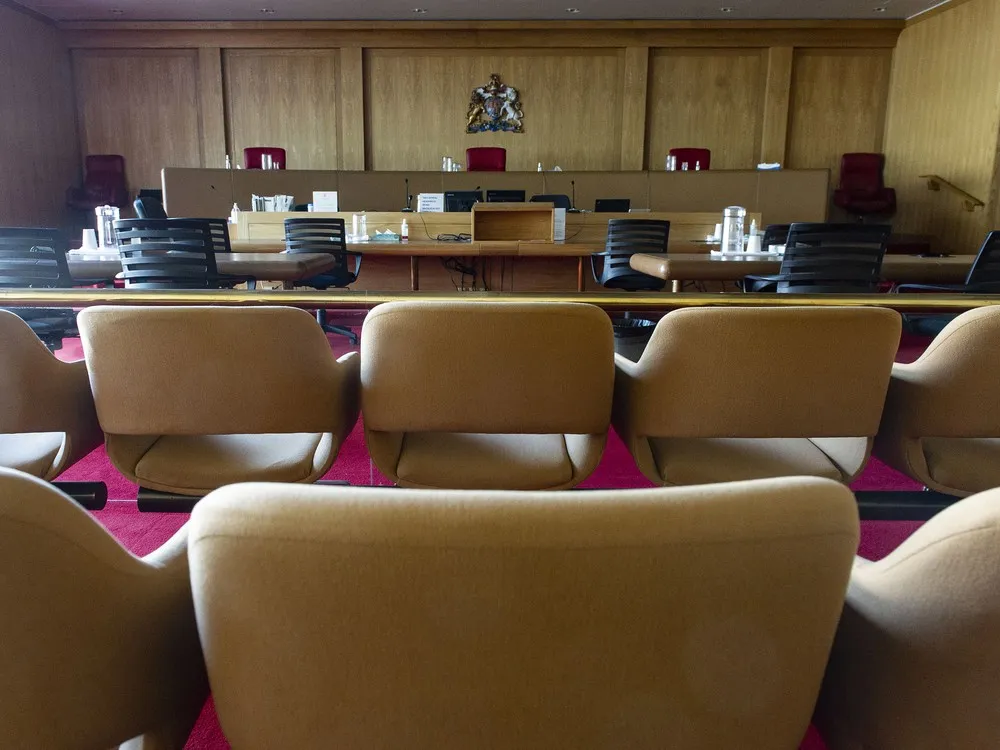By Susan Lazaruk
Copyright vancouversun

A number of people were awarded damages by the B.C. Supreme Court after the identity of a confidential informant was potentially leaked through negligence of an unnamed agent of the federal government — leaving them fearing for their lives.
But they lost an appeal to have the amount of damages increased.
To prevent further risk of identifying the informant, they were collectively called “Named Persons” in a recent B.C. Court of Appeal judgment. Their relationship to the informant and the number of people involved is unclear from the heavily redacted decision.
Named Persons sued the attorney general of Canada for negligence after an “agent of the Crown” mistakenly disclosed information “tending” to reveal their identity, according to the Appeal Court ruling.
The public version of the Appeal Court judgment leaves out more than 90 paragraphs listed under the headings for background, general damages and failure to mitigate. And a number of other paragraphs, sentences or words were removed in other sections of the judgment, all “to preserve informer confidentiality.”
Justice Peter Willcock, who wrote the Appeal Court ruling, said the trial judge in B.C. Supreme Court had “found the disclosure to have increased the Named Persons’ risk of death and to have caused them to fear for their lives” and that judge had “no difficulty finding that state conduct had deprived” them of their Charter right to life and security of person.
Willcock also quoted the finding by the trial judge that the disclosure wasn’t malicious or intentional, nor was it caused by systemic failure or a reckless disregard for informers. For that reason, the trial judge concluded the disclosure didn’t warrant aggravated or punitive damages, but instead awarded damages, including some to vindicate the plaintiffs’ Charter rights.
The trial judgment was more than 700 paragraphs long and has never been published. The trial judge planned to have a redacted version published, but the attorney general objected and the Court of Appeal later agreed.
“The judge erred in finding the publication of his proposed redacted reasons would not tend to identify a confidential informer,” wrote Willcock. Justices Patrice Abrioux and Joyce DeWitt-Van Oosten concurred with the decision.
The amount of the Supreme Court damage awards has never been revealed.
The Named Persons appealed the amount of the damages, arguing it was too low.
But Willcock dismissed the appeal and even set aside the Charter damages part of the award, ruling the trial judge hadn’t found that a “principle of fundamental justice” had been violated and ruled the Charter damages duplicated the damages under the other awards, which the Appeal Court left in place.
Postmedia challenged the secrecy around the case when the trial began. The trial was held in secret and bans prevented revealing details, including the identity of the Named Persons, witnesses, what the Named Persons were suing about, why the attorney general of Canada was the defendant, and why such extraordinary secrecy was required. The trial judge said at the time the case was one where the open court principle did not apply with its traditional force.
When Postmedia appealed, the Appeal Court said the secrecy was unsatisfactory because the public “must accept the word of the two courts that their Charter rights to freedom of expression and freedom of the press are being limited in a justifiable way on the basis of a record that they cannot see.”



